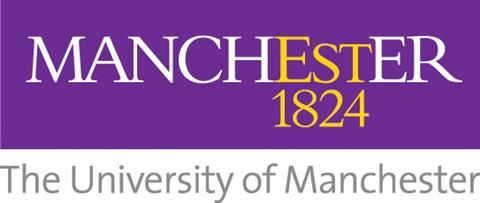The University of Manchester insight: Digital Assets Market: Technology, Policy and Law
[ad_1]
As the EU Markets in Crypto-Assets Regulation (MiCA) came into full effect in December 2024, HM Treasury has published proposed regulations for crypto-assets such as Bitcoin and stablecoins, bringing crypto-related activities under UK regulatory oversight. The Property (Digital Assets etc.) Bill is currently going through Parliamentary scrutiny. It is estimated that asset tokenisation will have reached $16 trillion by 2030. The US administration’s support for the digital assets market, including its Strategic Bitcoin Reserve and Digital Asset Stockpile, has also sent positive messages to the crypto markets, putting the importance of DTL (blockchain) once again on a par with AI and even quantum computing.

Financial institutions are also preparing themselves in various ways to maintain their status as trusted intermediaries and gatekeepers for financial stability, investor protection and financial integrity in the new digital age. The UK Digital Securities Sandbox and the EU DLT Pilot Regime both aim to accelerate the development of digital assets market. Some banks have started to apply for licenses under EU MiCA. Yet newcomers who managed to survive the so-called crypto winter brought about by the collapse of crypto-firms such as FTX, continue to position themselves in both traditional and decentralised finance spaces and to reinvent their business models as technology, policy and regulation evolve.
Technological Challenges and Opportunities
On the technological front, quantum technology acts as a double-edged sword by threatening the traditional cryptography method used to maintain security, while at the same time, enhancing security. Banks are now working with quantum technology firms to deliver secure market ecosystems.
Government initiatives, such as the provision of research funding, can be decisive. Central Bank Digital Currencies (CBDCs) are able to compete with the development of private ‘money’ such as Bitcoin and Ethereum. But CBDCs also face business and legal challenges. How can they be used to support the new tokenised markets at a whole-sale level and bring social benefits at a retail level? How can they comply with privacy and data protection law? Will they become a tool for surveillance of individuals and enterprises? Support for the development of Web3 and Metaverses will increase the use of these private ‘monies’ as well as digital assets such as non-fungible tokens (‘NFT’), yet associated issues such as tax, proprietary taxonomies, and access will need to be addressed.
Legal and Compliance Considerations
Legal and Regulatory frameworks will be decisive factors. Financial institutions will continue to act as intermediaries and gatekeepers for stability, investment protection and market integrity. Converting digital assets to fiat currencies will require coordination of financial institutions such as banks. Even in a market of decentralised autonomous organisations (‘DAOs), so-called ‘power tokens’ or ‘governance tokens’ will still need to be issued on the centralised digital exchanges which will continue to perform their regulatory function of protecting investors. Lawyers will also need to work out how to make digital asset claims against wrongdoers, whether they are exchanges, banks, or persons unknown. This will also involve working with, inter alia, third party analysts and investigators to trace assets. Lawyers must learn how to present evidence and arguments relating to blockchain, smart contracts and digital wallets in the courts and before arbitral tribunals in the way that they can comprehend.
Lawtech needs to go hand in hand with these developments, potentially providing compliance trackers, token issuing legal tools and dispute resolution platforms for small value tokens transactions.
While it is unlikely that digital transformation will come to a halt, the shape of digital assets market in the next five to ten years will depend on the interplay between technological advancements, policy directions, and legal and regulatory frameworks.
Advancing Legal Education
The University of Manchester, ranked among the world’s top 2% by QS World University Rankings, has a strong tradition in legal education dating back to 1872. Its Manchester Law Department now offers an online LLM in International Commercial and Technology Law.
The curriculum explores the intersection of law, technology, and commerce, addressing critical contemporary issues such as the legal and regulatory implications of AI, blockchain, cryptocurrency, and Web3. Learn more about this flexible, online LLM.

The University of Manchester
Oxford Rd
Manchester
M13 9PL
[ad_2]
Source link




